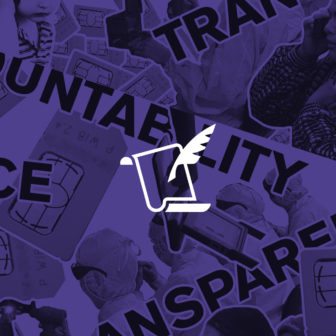Tag: UK

Internet shutdowns, attacks on encryption harm human rights in Brazil, India, U.K.
Our UPR submissions to the United Nations highlight risks to digital rights in Brazil, India, and the U.K.

Tell a friend: The UK IP Bill is back again
The bill still codifies mass surveillance, undermines encryption, and authorises mass government hacking.

Access Now reprises call for rights protections in U.K. IP Bill
The U.K.’s draft Investigatory Powers Bill would undermine encryption and mandate data retention, threatening human rights.

UK’s IP Bill: deficient on privacy protections, ample on surveillance authority
As written, the United Kingdom’s Investigatory Powers Bill would undermine privacy, data protection, freedom of expression, and digital security.

Proposed revisions to UK’s draft IP bill are laudable, but do not go far enough
The United Kingdom is considering a dangerous surveillance law that puts human rights at risk. Proposed changes to the law fail to address its fundamental flaws.

DRIP: European Commission’s response to Access Now’ notification of infringement
Here is the European Commission’s letter acknowledging Access’ notification of infringement regarding the United Kingdom’s breach of E.U. law through its adoption of the Data Retention and Investigatory Powers (DRIP) on 18 July 2014.

UK parliamentarian deals a punch to data retention, but EU saga continues
Last week, the UK Court of Appeal sent the David Davis data retention case to the Court of Justice of the European Union (CJEU) for clarification. How the CJEU responds could have implications for data retention across the EU.

UK courts hacking away at surveillance powers
Last week, the UK High Court issued an opinion explaining how emergency legislation passed last summer — the Data Retention and Investigatory Powers Act of 2014 (DRIPA) — violates EU law. We analyze the ruling and consider the implications for the future of privacy and data retention in Europe.

Access presses telco BT to respect user privacy at shareholder meeting
At the BT (formerly British Telecom) annual general meeting in London, Access directs the following question to company’s CEO, as well as to its board: What specific next steps will BT take this year (that is, in the next 12 months) to better protect customers’ privacy and free expression rights, and to achieve greater transparency around its actions, in every country where you operate?

Human rights left out of sight in UK’s new surveillance guidelines
Access and a coalition of civil society organizations called on the Home Office of the United Kingdom to address questions about the lack of human rights protections found in its surveillance authorities.